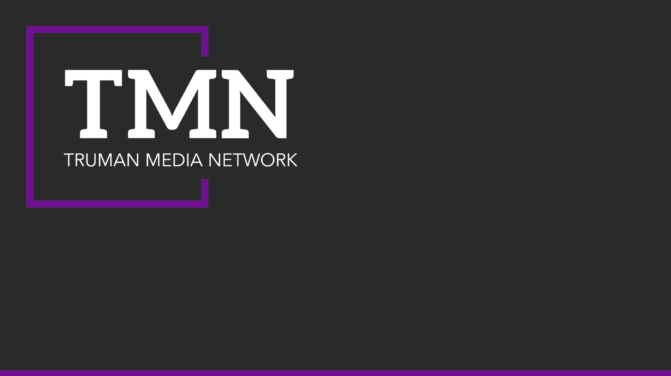
Medical marijuana
Three ballot initiatives — Amendment 2, Amendment 3 and Proposition C — would legalize marijuana, or cannabis, for medical reasons statewide. All three proposals would require licensing of any person or institution producing or prescribing the substance, which is currently banned under state and federal law.
Amendment 2 and Amendment 3 would change the Missouri Constitution to allow for medical cannabis, while Proposition C would only change state statutes. This means Proposition C would be much easier for the General Assembly to overturn. The tax levels for retail sales of marijuana also differ in each of the three proposals: Proposition C would tax marijuana products at 2 percent, Amendment 2 would tax them at 4 percent and Amendment 3 would tax them at 15 percent tax. Each ballot measure also calls for a different use of tax revenue. Proposition C calls for the funds to go toward veterans services, drug treatment and drug education. Amendment 2 would send the money directly to the Missouri Veterans Commission. Amendment 3 would put the tax dollars toward a research institute for future drug policy. Springfield attorney Brad Bradshaw would be in charge of such a research institute, giving him significant control over the direction of drug policy in the state, according to the Kansas City Star.
If any of the three proposals pass, Missouri will join more than 30 states in legalizing medical cannabis, according to the National Conference of State Legislatures.
If both constitutional amendments pass, the one with more votes in favor will become law. If one or both of the amendments and Proposition C pass, the constitutional amendment will supersede the statute, according to The Star.
All the Missouri proposals would only affect Missouri law and would not change the federal banned status of marijuana.
Minimum wage
Proposition B on the Missouri ballot would raise Missouri’s minimum wage — currently $7.85 per hour — to $12 per hour over the next five years
If passed, Proposition B would require the minimum wage for non-farm work to be raised 85 cents per year until 2023, at which point the minimum wage would sit at $12 per hour. This would give Missouri a higher minimum wage than any other state in the nation, according to the U.S. Department of Labor. Washington currently has the highest minimum wage of any state at $11.50 per hour, though the District of Columbia has a minimum wage of $13.25 per hour.
The proposed $12-per-hour minimum wage is higher than the average hourly wage in multiple Missouri counties, according to the Missouri Department of Economic Development.
The Missouri Chamber of Commerce and Industry has strongly opposed the passage of Proposition B, claiming the wage hike would hurt small businesses and cause job losses. Daniel P. Mehan, president and CEO of the Chamber, said in a press release the higher minimum wage would make Missouri uncompetitive and drive business away from the state. However, according to the Kansas City Star in an editorial endorsing the proposition, the wage hikes benefit low-income workers and the overall economy through spending while not affecting employment levels.
Proposition B excludes public employees from the new minimum wage pay for public employees and contractors, as factors are already in place to determine wages for these employees.
Clean Missouri
Amendment 1 — also known as the Clean Missouri proposal — aims to combat political corruption by limiting gifts to legislators as well as banning legislators and members of their staffs from becoming lobbyists immediately after leaving office, among other restrictions.
The amendment would also revise the process for drawing congressional district boundaries in an effort to make them more fair. However, the Springfield News-Leader reports some conservatives are concerned the new system could create a liberal bias. Clean Missouri, the organization proposing the amendment, claims legislators are able to choose their own voters and protect their seats under current rules.
Bingo
Amendment 4 concerns bingo in Missouri and how it can be advertised to the public.
There are over 500 locations that host bingo games in the state, and they are regulated by the Missouri Gaming Commission, which also oversees casinos and other forms of gambling, according to the Missouri State Highway Patrol.
Passage of Amendment 4 would lower the amount of experience a volunteer or employee needs to work with an organization hosting bingo. Currently, to manage a bingo game, someone must be a member of the hosting organization for two years. The amendment proposes changing that requisite experience to six months. This would allow more people to volunteer to help with bingo games.
The amendment would also remove text in the Missouri Constitution disallowing the advertisement of bingo games which, according to the Columbia Missourian, was declared unconstitutional by the U.S. Supreme Court in 1998.
Unlike all but one of the other referenda on the ballot, this amendment was proposed by the General Assembly rather than by a public petition.
Gas tax
Proposition D proposes raising Missouri’s gas tax for the first time since 1996 by 10 cents over the next four years.
Currently, Missouri’s fuel tax is 17 cents per gallon, making it one of the lowest in the nation. Proposition D, if passed, will raise that rate by 2.5 cents per year until the rate settles at 27 cents in 2022.
The extra funds raised from the higher tax — estimated to be over $400 million annually — will be split between the state law enforcement and local governments for infrastructure repairs. The proposition also would create a new state fund dedicated to the maintenance and repair of the state’s roads and bridges.
In addition to the gas tax, the ballot measure proposes creating a state tax deduction for prizes from the Olympics, Paralympics and Special Olympics.
Proposition D is the second ballot referendum proposed by the General Assembly.
